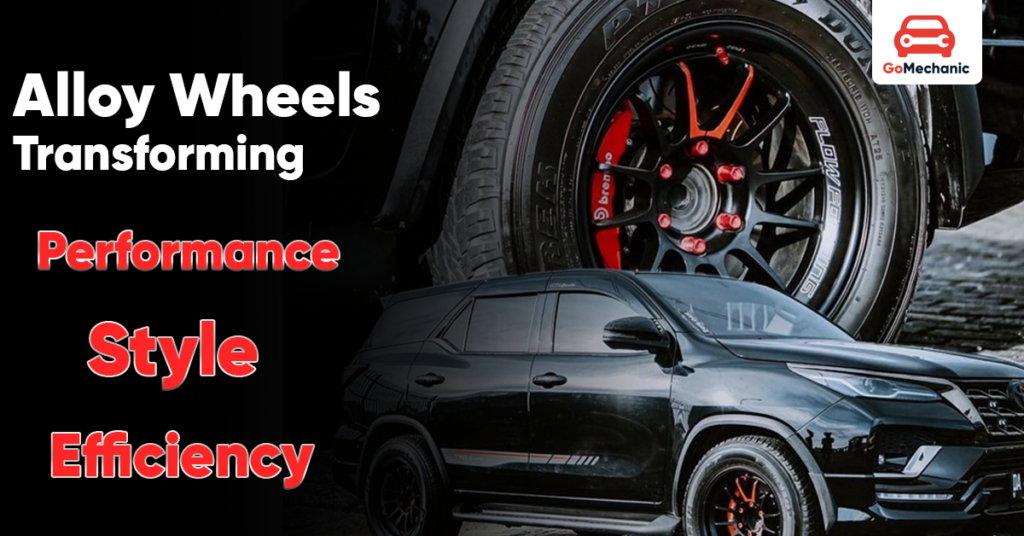The days of alloy wheels as a luxury add-on to high-end vehicles like a lambo are gone. It has effectively become a performance upgrade that better helps a car perform, handle, accelerate, and look like it means business on the road. Whereas alloy wheels at one time made quite a statement in automotive elegance and style, they have metamorphosed into an accessory that promotes better vehicular performance as well as fuel efficiency, and modern styling. We have an in-depth guide that will give you all the insight you need about what are alloy wheels from the “bad boy” construction and the different types, advantages, and disadvantages of Alloy wheels along with their effects on jobs and how long they would withstand.
What Are Alloy Wheels?
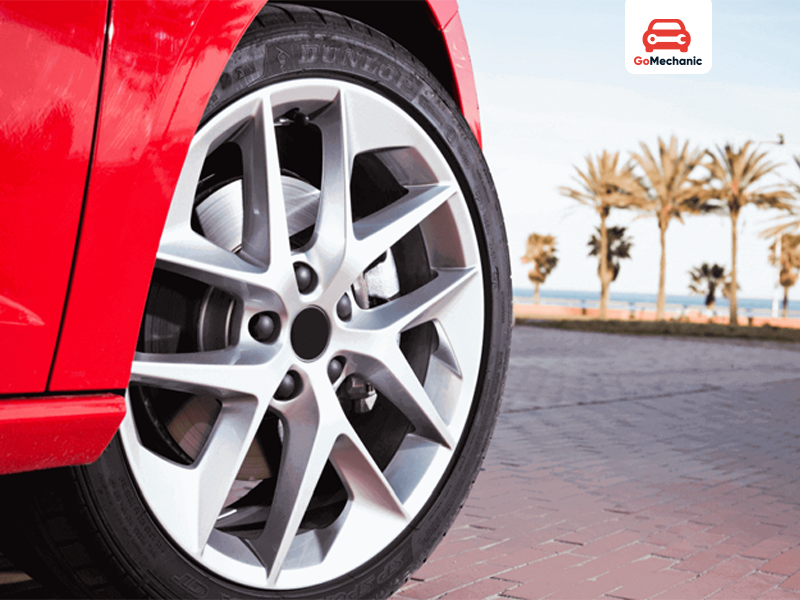
Alloy wheels, mostly made from aluminum, magnesium, or other alloys, are a set of wheels. Unlike the older version of steel wheels, which are heavier and have a simpler design, alloy wheels incorporate both style and substance. Perhaps contrary to steel, alloy wheels are lighter: hence another reason why it’s preferred; and so, bringing in more than a series of benefits. One of the possible differences is that their very light weight serves to make the car’s unsuspended weight lighter; hence, one other explanation for mountains of improvement in car ride quality is due to better shock absorption and a more effective suspension system. Whether making a car ride smoother, handle better, or braking quicker, its role cannot be overstressed.
Types of Alloy Wheels
Alloy wheels come in a multitude of shapes and designs, catering to different types of uses and settings. Provided below are some of the most common types of alloys to help you navigate your way among the myriad choices that currently exist:
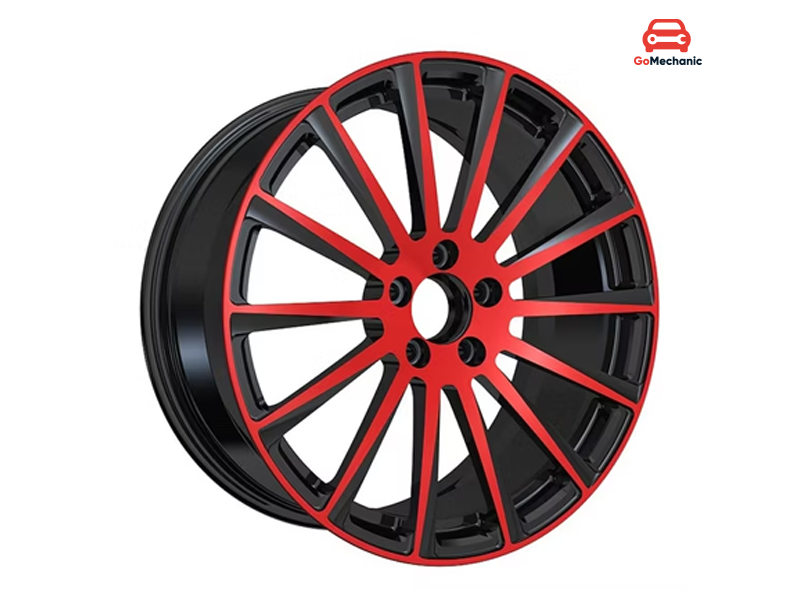
One-piece alloy wheels are made from one single piece, usually aluminum. This construction gives them a minimalistic and clean profile which is popular among the typical run-of-the-mill passenger car. Because they are just one piece, one-piece wheels finished products tend to be cheap. The simplistic design contributes to excellent durability and strength, offering for a good alternative to regular driving. They provide good performance for fairly good pricing.
Do Read: Expert Guide to Car Tyre Air Pressure: Safety, Performance, and Maintenance Insights
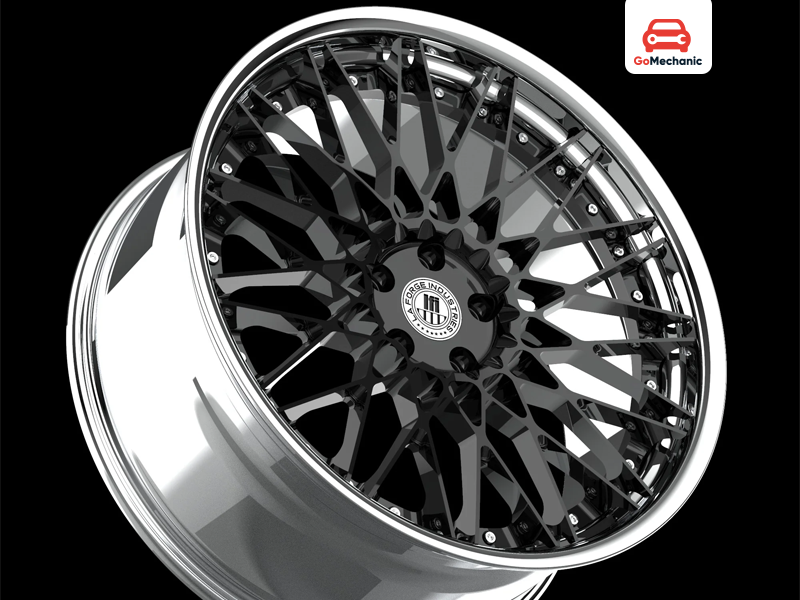
Two-piece alloy wheels are made of an inner rim base and an outer barrel, which are joined together typically through bolts. This enables higher connectivity for the driver in which wheels may be configured to any width, different dimensions in the rim area, etc. For custom airbrushed paint or other personal desires by the owner, such wheels are the favorite of quite a few street drivers who want some extra uniqueness added to the performance and still want the performance to be in place.
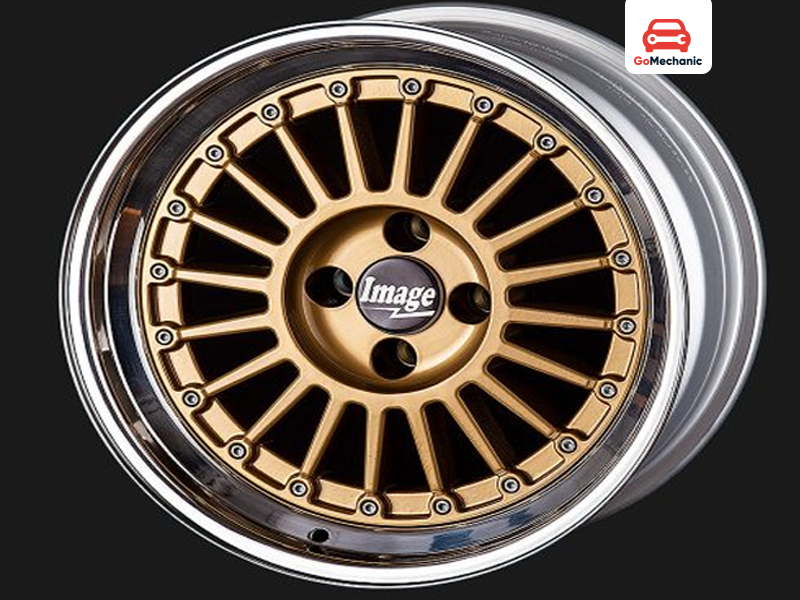
Three-piece alloys scream out customization but for a good reason. They are made of three separate parts: the center section, the inner rim, and the outer barrel, giving drivers the best option in variable aesthetics. Moving from that advantage, only parts can be replaced and easily swapped about whenever needed, fixing up repair needs rather than replacing the wheel.
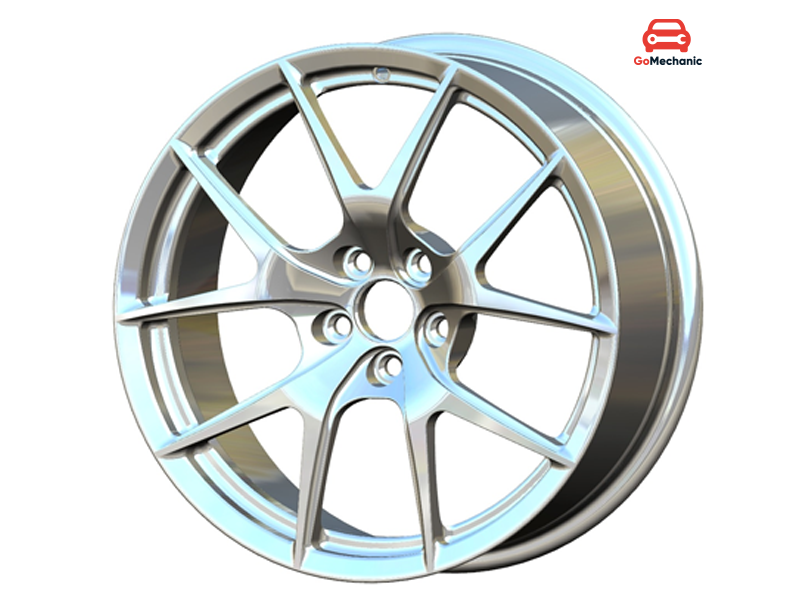
Forged alloy wheels are truly at the top of the game when it comes to strength and lightweight design. Through the pressure of compressing and shaping an entire block of metal together, the result is formidable and light wheels. The metal integrity of forged wheels is enhanced far beyond cast-metal wheels and renders them most ideal for a high-performance car like race cars or track racing. Forged wheels can withstand higher dampening and smooth braking and gripping to some extent during quick acceleration or when piloting, laying claim to accuracy in performance. Nonetheless, this fine quality amounts to high costs for forging, which seem low to average consumers at this time.
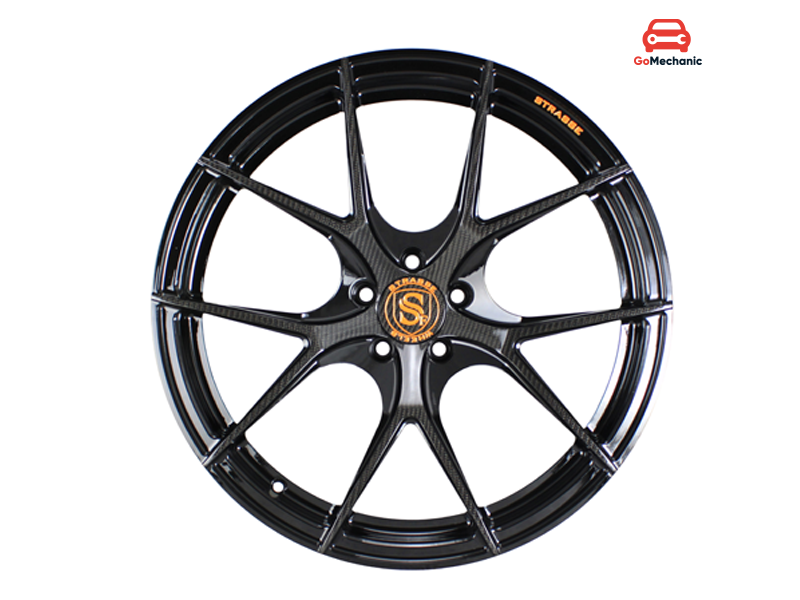
For individuals who want to take the limit beyond normal, carbon fiber wheels offer unlimited possibilities with their new chemistry of a super light and high-strength combination. Wheels made from carbon fiber-laden composites are liable to have high strength in tremendous lightweight, making them suitable for numerous racing events and top-speed vehicles without carrying excess weight. Carbon wheels represent a significant technological achievement nowadays but as a disadvantage are expensive to purchase, requiring specific attention to upkeep for constant, long-lasting functionality.
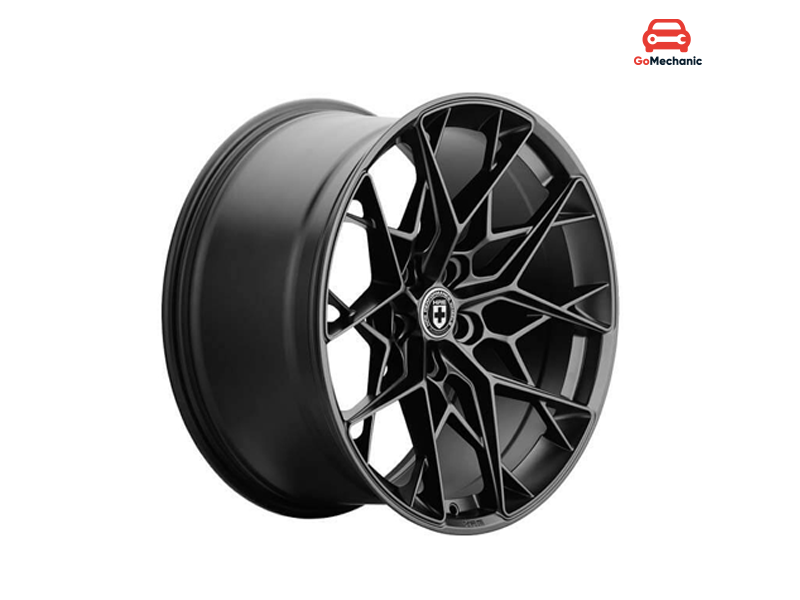
Flowforming is a manufacturing process that allows for the best of both worlds: affordability gleaned from casting and strength from forging. Wheels are heated and then rolled to create a compressive, high-speed process whereby metal is stretched and exerted onto a light and strong wheel.
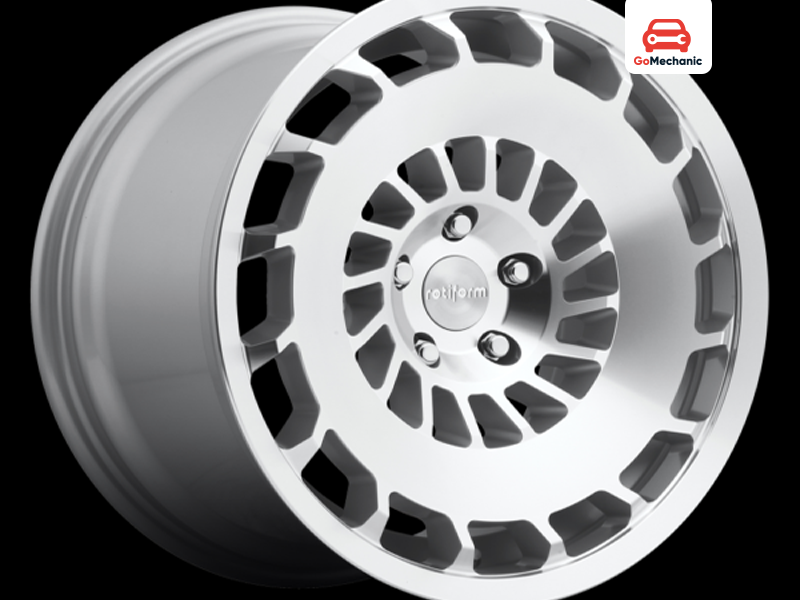
Monoblock alloy wheels are those alloy wheels made from a single piece of material, regardless of the complexity of the design. The wheels are usually made from cast aluminum or other lightweight alloys. Monoblock wheels are strong, affordable, and come in a wide range of designs. They are very common for daily drivers and performance vehicles.
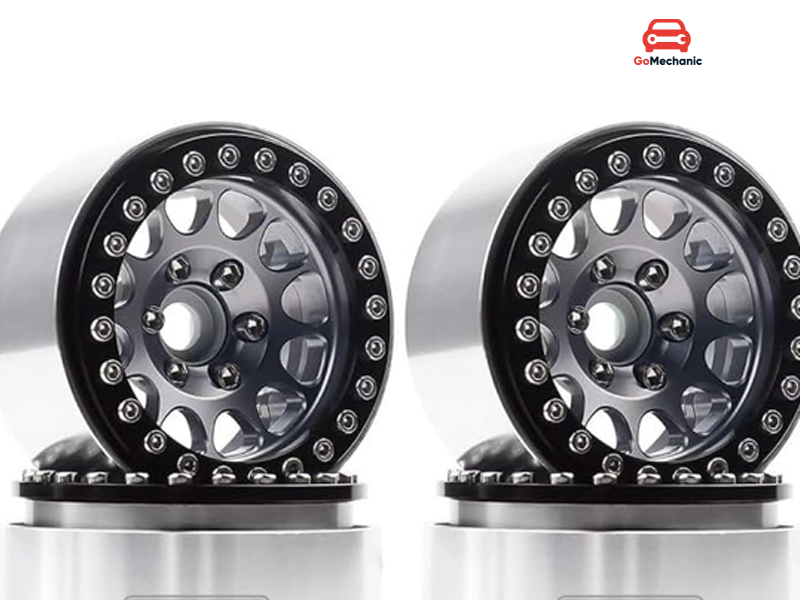
Beadlock alloy wheels are designed for off-road enthusiasts. The locking ring of these wheels secures the tire bead to the wheel. This allows the tire to be inflated to extremely low pressures without fear of the tire coming off the rim. Beadlock wheels are essential for off-road driving. For the places where the terrain can be uneven, and tire pressures need to be adjusted for optimal traction and grip.
After we have studied what are alloy wheels let’s learn about why choose them.
Why Choose Alloy Wheels?
There are several good reasons to choose alloy wheels over steel wheels. Beyond their appearance, alloy wheels bring a tangible benefit in performance, which makes them better than traditional steel wheels.
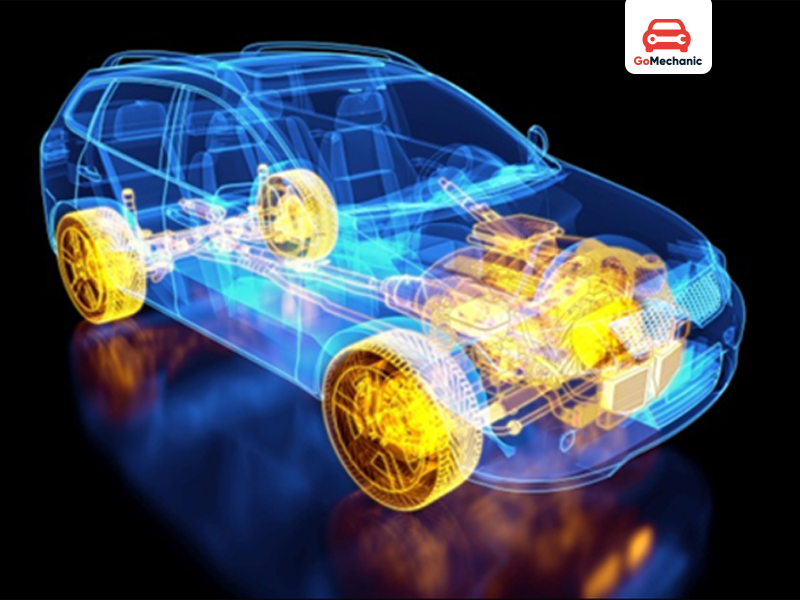
- Better Performance of Vehicles
Alloy wheels make a lighter vehicle. Lesser unsprung mass is produced if a lightweight wheel is there. This will cause good handling, more acceleration, and excellent braking. Alloy wheels provide finer handling and better cornering along with improved capabilities as weight forms a critical characteristic of suspension.
- Fuel Efficiency Improved
Alloys are lighter in weight. With alloy wheels, fuel economy increases. A 10% decrease in the wheel weight can increase the mileage by up to 2%. Although this seems like a meager amount initially, it tends to add up as time passes for drivers who are on the road for hours on end.
- Resistance to Corrosion
Alloy wheels are much more resistant to moisture and road salt, which causes rust and corrosion in steel wheels. Most alloy wheels are coated with protective layers that prevent corrosion and damage caused by weather conditions, making them more suitable for use in all seasons.
- Style and Personalization
The best look ever for the personalization of one’s vehicle is what alloy wheels provide, which is another vital advantage. Their alloy has different designs, sizes, and finishes; because of this, the best set of wheels that will go with your car and personality can be chosen. If you want something sleek, modern, aggressive, or sporty, there surely is an alloy wheel that can match the look you like.
Alloy vs Steel Wheels: Key Differences
When deciding between alloy and steel wheels, it’s important to understand their key differences:
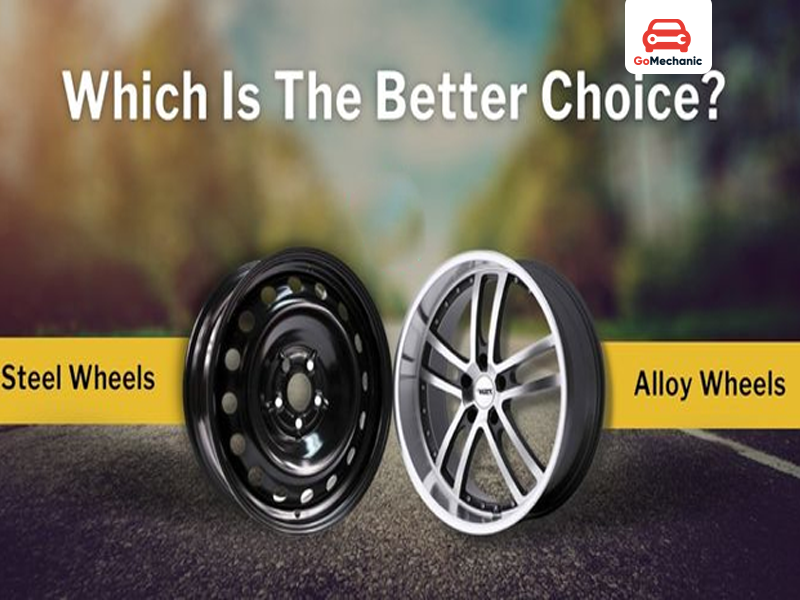
| Feature | Alloy Wheels | Steel Wheels |
| Weight | Lightweight | Heavy |
| Durability | Corrosion-resistant | Prone to rust |
| Design | Intricate, customizable | Simple, utilitarian |
| Performance | Better acceleration, braking | Limited performance |
| Cost | Higher upfront cost | Budget-friendly |
Considerations for Buying Alloy Wheels
When purchasing alloy wheels, consider the following factors to guarantee the selection of the best set of wheels for your vehicle:
1. Car Compatibility
It is recommended that you select the wheels that match the make of your car. This involves verifying the size of the wheel, the bolt patterns, and the specifications of offsets. An inadequately matched wheel may lead to poor performance and wear down the vehicle.
2. Performance Requirements
What is your driving style and need? Are you concerned with light weight for performance and handling or are durable, heavy-duty wheels for off-roading what you are looking for? This can help to sort out your various possible options.
3. The Price
Alloy wheels are available from one end of the price scale to the other. While the most expensive is usually forged, there are cast wheels and flow-formed ones that are cost-effective without losing performance. Set the budget that you are comfortable with and look out for those that come under that range.
4. Weather Balloon Conditions
This is a factor one should consider especially if he or she lives in an area with harsh/winter conditions or salted roads. It will be helpful to get alloy wheels that are also corrosion-resistant. Also, more important is the consideration for wheels with a protective coating to avoid damage from the unrefined.
5. Style
The looks of the wheels like anything else are dependent on how one wants them. Alloy wheels come in different decorations with a choice of varying finishes and colors, adding to the overall look of the vehicle while making great impressions on the road.
Related: Tyre Speed Ratings: Here Is Everything You Need To Know
Some Tips on How To Maintain Alloy Wheels
With proper care, you can help you utilize your alloy wheels for many years. Here are some key tips to help you in their appropriate upkeep.
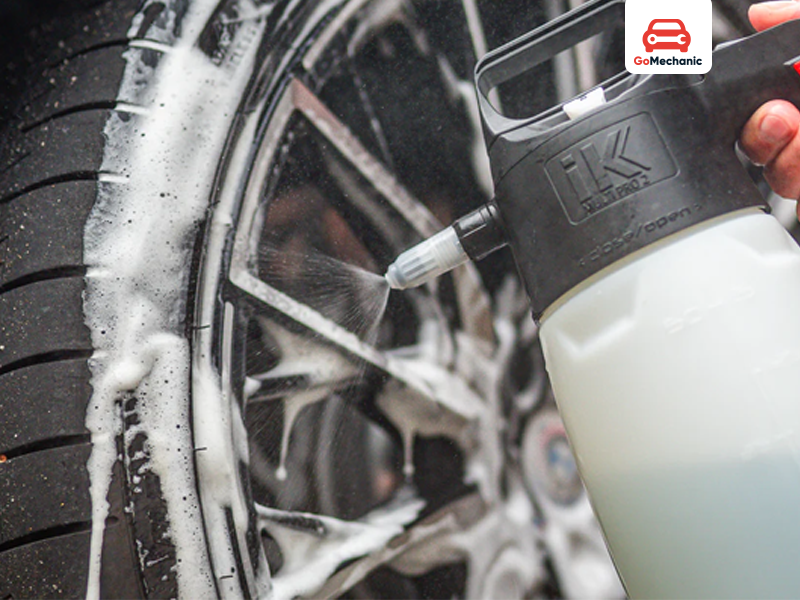
1. Clean the Wheels Regularly
By doing regular cleaning you can help to prevent traces of blemishes from developing on your wheels due to dust, dirt, brake dust, and road salts. It is advisable to use just a mild soap and water instead of any high chemical content. Rough cleaners or cleaners with abrasives can only scratch the finish or remove the clear coating.
2. Wax Coating
Obtaining a wax coating for your alloy wheels will help them regain their shine and offer a shield to the wheels against surface dirt, road slime, and road salts. Additionally, this simple action will help prevent rust corrosion and assist in the feeling of the newness of authentication.
3. Do a Quick Inspection
Alloy wheels should be checked from time to time for anything unusual, notice significant problems like cracks, dents, or scratches. Quickly acquiring cracks or damage on alloy wheels is significant as they will usually lead to other issues if left unresolved. Therefore, if any major damage is suspected, rushing should be done to take them to the garage.
4. Repairing Scratch Immediately
Scratches, called rash to some, are problem areas that are born again at the fault of the user who drove over a curb. Anticipating an entirely refurbished and refinished wheel can indeed be the end of the wheel.
5. Regularity in Cleaning
Periodic cleaning might be needed to wash off dirt, brake dust, and road salt. Use a soft cleaner to avoid destroying the surface. In the event of small scratches or curb rash, it is essential to consider the option of repair at an early stage to prevent corrosion and further damage.
6. Protection Layer
Waxing or coating the wheels is vital, for they shield the wheels against dirt, salt, and moist air. If you have the time, schedule a periodical check of your wheels to see if they hold their shape broken might cost you your wheel integrity.
Advantages and Disadvantages of Alloy Wheels

Advantages Of Alloy Wheels
- Enhanced Aesthetics And Style
Alloy wheels are added jewelry that brings the much-needed zing to your car. Car lovers all over the world admire the look of these mod wheels with their shiny chrome and matt, which feature expressively.
One obvious advantage of alloy wheels is their lightweight as compared to steel. Lighter cars handle better, they stop better, they accelerate better, and they ride much smoother, with a few bumps.
- Reduced Brake Overheating
Another one among the advantages of alloy wheels are considered good for their property of absorbing the heat when you’re going to apply the brakes. It helps in preventing the brakes from failing and allows the stopping system to perform more competently, especially under a long duration of use or around hills.
With the weight on the lower side versus the steel wheels, fuel efficiency is bound to surge. The greater the mass, the greater the amount of horsepower and energy the engine requires to be used. Therefore, increased weight would apply even more energy, while lighter wheels use less force from the engine, generating high mileage.
Alloy wheels are less likely to corrode or rust compared to steel wheels, rendering them more reliable under harsh weather conditions and lengthening their life cycle.
Disadvantages Of Alloy Wheels
Alloy wheels are much more expensive than their steel counterparts. The manufacturing process and their beautiful look, in reality, do contribute to this high price, which makes them even more of a venture.
Alloy wheels are more likely to be stolen than others, mainly due to their beautiful design and the corresponding demand. Vehicle owners have to look seriously at locks for increased security.
- Requires More Maintenance
Alloy wheels are more prone to scratches, probably because they are considerably softer than steel wheels. The aluminum is often very frustrating to have to maintain hence this leads to rank among
The alloy wheel is tough yet it does not mean it has the bashing power of a steel wheel. They can crack or bend drastically if exposed to harsh action, like hitting potholes at a particular rate.
Do Read: Life of Car Tyre: Everything You Need to Know to understand the detailed view of car tyres.
- It Can End up Overpriced for Repair
Aluminum alloy wheel repair is mostly costlier than steel ones. Lifting up alloy wheels to be able to repair them mostly requires a repair shop with expensive specialized tools and experience.
What are Aluminum Wheels
Aluminum alloy wheels rank amongst the most well sought-after types of alloy wheels. They are lighter compared to steel wheels, thereby helping in the improvement of the vehicle’s fuel efficiency, handling, and performance. Aluminum wheels are normally used to enhance the speed and elegance of the vehicle and offer possibilities of combinations with copious polished, brushed, and anodized finishes, which in the end is perfect for the customization of any vehicle.
Why There Are High Considerations For Alloy Wheels
There are several factors for which alloy wheels enjoy such here heightened popularity:
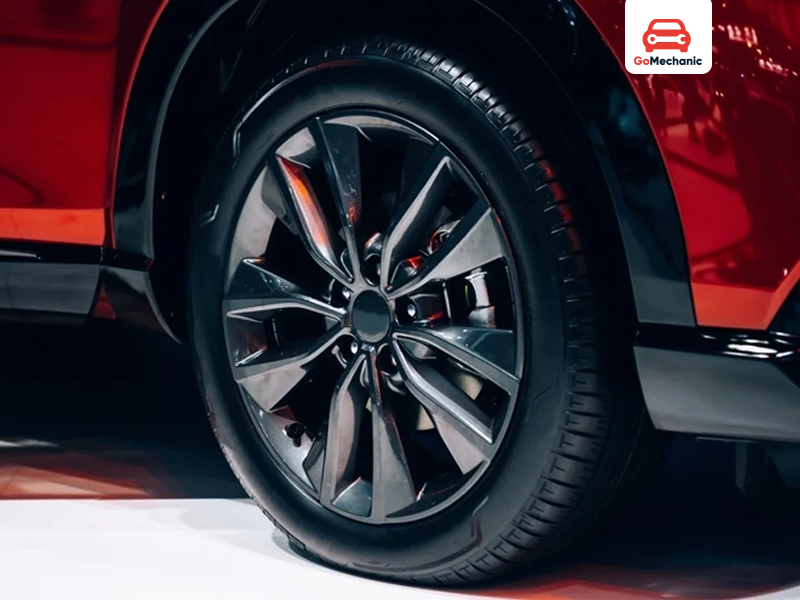
- Visual Appearance: They offer a slick, modern look that enhances the whole vehicle.
- Performance: By taking off weight, these tires effectively improve handling, acceleration, and braking.
- Lifespan: Lacking a longer life than steel wheels, alloy wheels are less likely to develop corrosion and other wear.
- Fuel Efficiency: Much implicitly correlated with weight, higher fuel mileage makes them a good option in real-world conditions.
Popular Alloy Wheel Choices
Some of the cream of the crop among the choices of alloy wheels from India include the following:
- BBS: The brand to look for when a buyer wants lightweight, high-performance wheels.
- OZ Racing: Generally known for tough, high-quality, race-grade alloy wheels.
- HRS: An established brand selling several alloy wheel models fit for any type of vehicle.
- MOMO: Offering pretty good designs with spectacular performance is what we would associate with their product; they find their way into more upscale car models.
To understand what are alloy wheels on a deeper level it is important to know these as well.
Diamond Cut Alloy Wheel
Mags to be diamond cut have their surfaces machined away to leave them with a beautifully polished metallic finish. The cut is deliberate with the result being a very bright and shiny, almost mirror finish. They are mostly used for luxury and high-performance automobiles.
Powder Coating Wheels
This process of covering the wheel surface with dry powder is completed by baking. The powder disappears, leaving a smooth, durable, and shiny finish. Powdered wheels come in many colors and finishes and are corrosion-resistant. This makes them ideal for any weather condition.
Also Read: 16 Cars in India with the Best-Looking Alloy Wheels!
What Size of Wheels to Get
Choosing the right wheel size will ensure good handling and performance. Bigger wheels may improve the looks of the ride but may deteriorate riding comfort and fuel economy. Always refer to the vehicle manufacturer’s standards in selecting wheel sizes.
Wheel Rims
The wheel rims are the outer edges of the wheel to which the tire is fitted. When purchasing alloy wheels, make sure that the wheel rims are made of good-quality alloy to enhance tolerance to inculpatory damage. Rims come in varying shapes, such as straight, curved, and multi-spoke designs; they have a major effect on enhancing both the car’s appearance and performance.
Wheel Covers
Wheel covers, also known as hubcaps, are designed to protect the wheel surface from dirt, moisture, and debris. Although they are typically used to cover steel wheels, alloy wheels do not generally need wheel covers because of their polished or painted finish. Some of the series of drivers use aesthetic wheel covers to give the vehicle some decorum or to protect the alloy finish from every scratch.
Conclusion
At the bottom of everything, after you have learned what are alloy wheels, alloy wheels make a huge bang for your buck, presenting the perfect triad of style, mojo, and durability. While you are driving, even if you simply wish to improve your car’s handling, enhance fuel efficiency, and give your vehicle an up-to-date, extraverted flashy appearance, alloy wheels offer a number of advantages over steel wheels. Given the wide range of configurations and finishes to choose from, you only need to pick one set of alloy wheels that will please both needs and preferences. By considering factors like size, material, and compatibility, and provided you take proper care of them thereafter, you can be assured that these wheels will enhance your driving experience while lasting for many years to come. Consequently, whenever you are ready to take your car a notch higher, be sure to make that choice, since going for alloy wheels is a decision that will solve performance and aesthetics in one knock.

